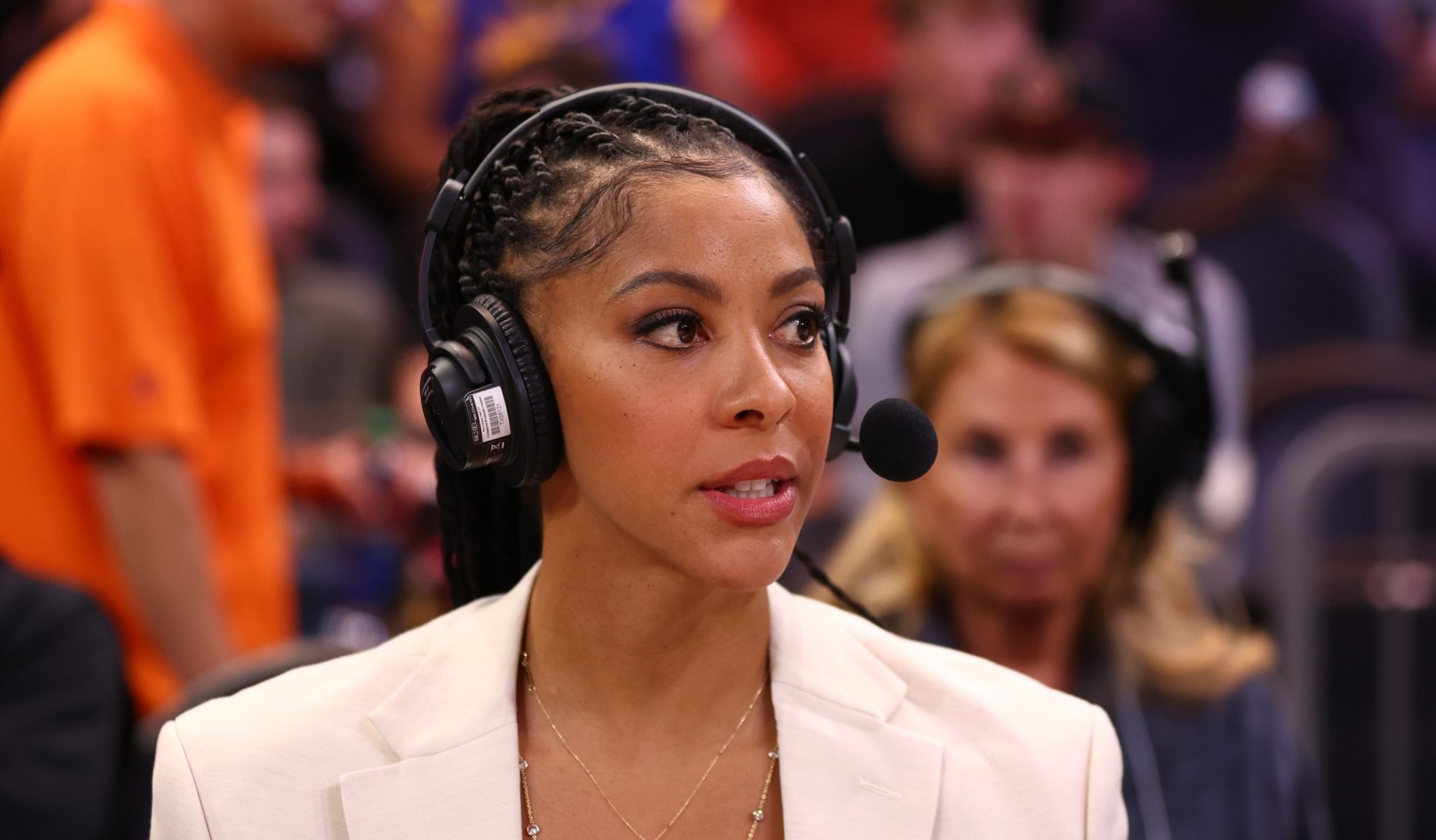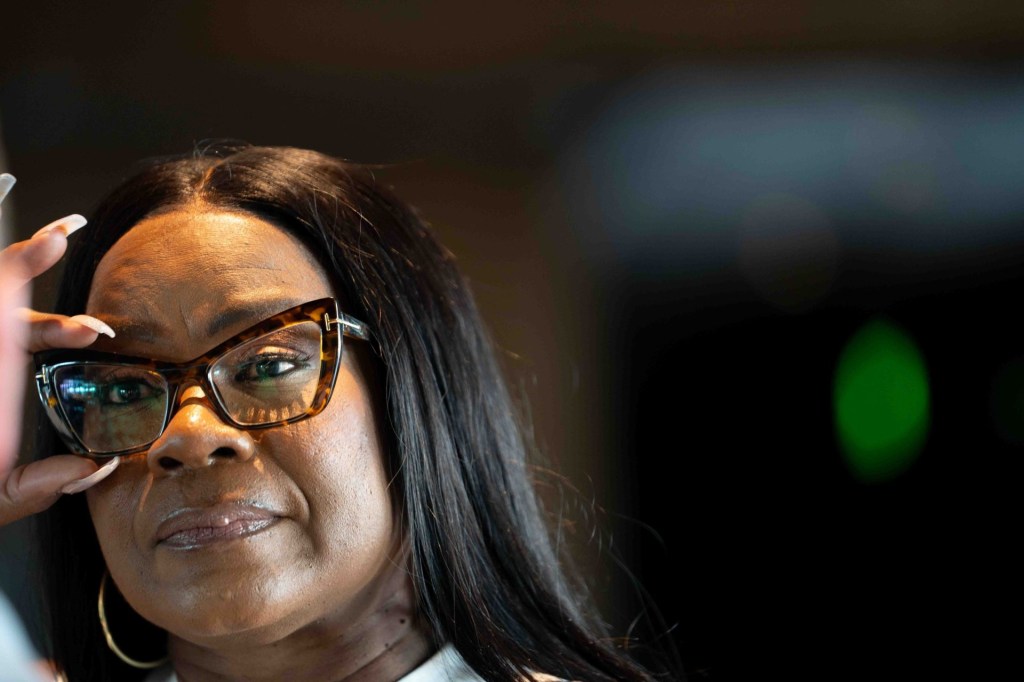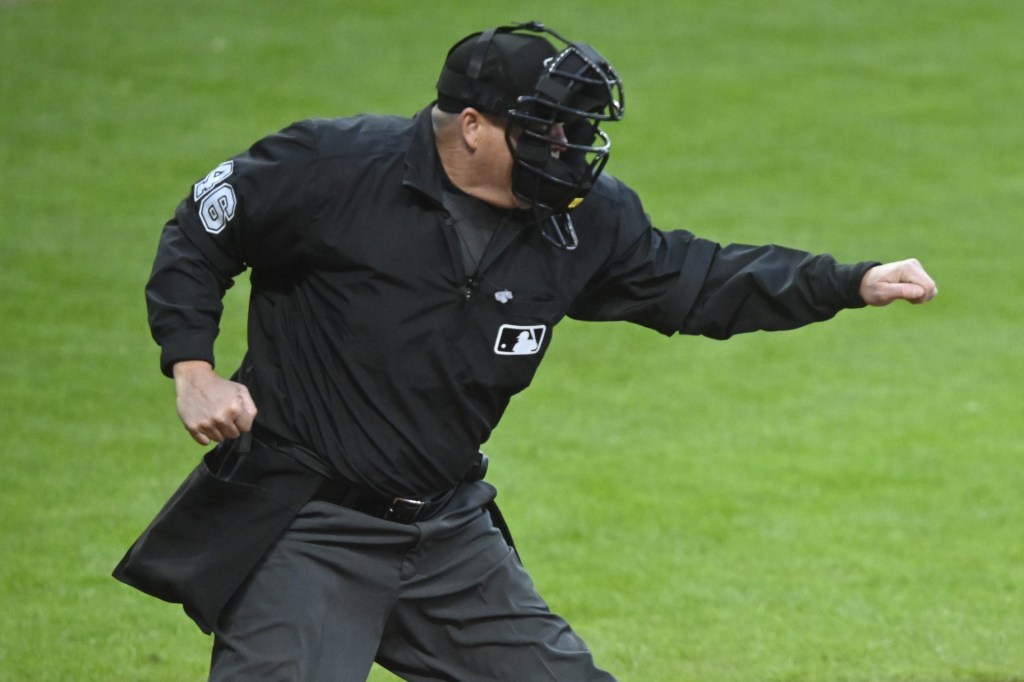Just 10 days after retiring, Candace Parker has a new job.
After ending a legendary career in the WNBA, Parker was announced as the president of women’s basketball for Adidas. Parker was the first woman to receive a signature shoe with the company in 2010.
Parker’s impressive-sounding title is part of a trend of companies putting athletes in director-level positions. Shaquille O’Neal was named president of Reebok basketball in October with Allen Iverson joining him as vice president and while actively playing, in April, Thunder star Shai Gilgeous-Alexander was named creative director of Converse Basketball, which is owned by Nike.
Just like Parker, O’Neal, Iverson, and Gilgeous-Alexander have long-standing ties to the sneaker company they now help operate.
“From high school to college to playing pro to now, this appointment by Adidas symbolizes a shared commitment to making impactful change and setting new benchmarks for the future of women’s sports,” Parker said in the release.
“It is a trend that is long overdue,” said Dave Wakeman, a strategy consultant to professional sports teams and leagues. “For somebody like Adidas, it’s a great way to establish themselves outside of soccer, including football, because they have struggled for the last decade or so to be relevant outside of soccer and Europe.”
O’Neal has already started building Reebok, using his connections at LSU, his alma mater, to land WNBA rookie Angel Reese, who said she considers him to be a father figure. Parker, meanwhile, inherits an Adidas roster that currently has WNBA and college standouts such as Aliyah Boston, Hailey Van Lith, Kahleah Copper, Aaliyah Edwards, Chelsea Gray, Betnijah Laney, Alysha Clark, and sisters Nneka and Chiney Ogwumike.
Parker, 38, won two college titles while at Tennessee and three WNBA titles with three different teams in a decorated 16-year pro career.
Though Nike owns Converse, the brand that made Gilgeous-Alexander its creative director, don’t expect the biggest name in basketball sneakers to necessarily follow the trend with its main line. The Swoosh already has Michael Jordan, the godfather to the sneaker industry, along with selling giants such as LeBron James and Kevin Durant, and it just signed Caitlin Clark to a signature shoe deal.
Because Nike owns the lion’s share of the basketball sneaker space—roughly 44% in 2023—defining success for the smaller brands such as Reebok and Adidas likely won’t come through sales, at least not immediately.
“Adidas or Converse, they can’t necessarily measure their success against what Nike’s doing,” Wakeman said. “Because of that, Nike’s going to have a different strategy than they are. One of the big issues that they probably are going to look at is just overall top of mind. That seems to be one of the things that Adidas has struggled with in the States is that they, do they come to mind in the buying situation? And a lot of times the numbers would indicate that that may not be the case.”
While landing Reese was an early success for O’Neal, he’s been on the job for roughly six months, which is why it’s too early to gauge his prospects or outlook at getting Reebok back in the sneaker game. Similarly, Gilgeous-Alexander has been busy playing since his new Converse deal was announced in April.
“But if you just look at it as, you know, are they selling more sneakers, that might give you a false impression of the success or failure of what they’re doing,” Wakeman said. “You can do all kinds of things that can bounce your numbers for a quarter or two. But the long-term thing, success is something like this.”
In her new role, Parker will be overseeing Adidas’s product lines for women’s basketball. Wakeman said he will be watching to see how Parker’s role evolves, if it does, and how her products stand out compared to what Adidas is already offering.
“Does it stay consistent with the Adidas brand? Do you see the Adidas brand sort of shifting or being modified a little bit to make, you know, make the differentiation between Adidas and Nike clearer?”





![[Subscription Customers Only] Jun 15, 2025; Seattle, Washington, USA; Botafogo owner John Textor inside the stadium before the match during a group stage match of the 2025 FIFA Club World Cup at Lumen Field.](https://frontofficesports.com/wp-content/uploads/2026/02/USATSI_26465842_168416386_lowres-scaled.jpg?quality=100&w=1024)
![[Subscription Customers Only] Jul 13, 2025; East Rutherford, New Jersey, USA; Chelsea FC midfielder Cole Palmer (10) celebrates winning the final of the 2025 FIFA Club World Cup at MetLife Stadium](https://frontofficesports.com/wp-content/uploads/2026/02/USATSI_26636703-scaled-e1770932227605.jpg?quality=100&w=1024)










